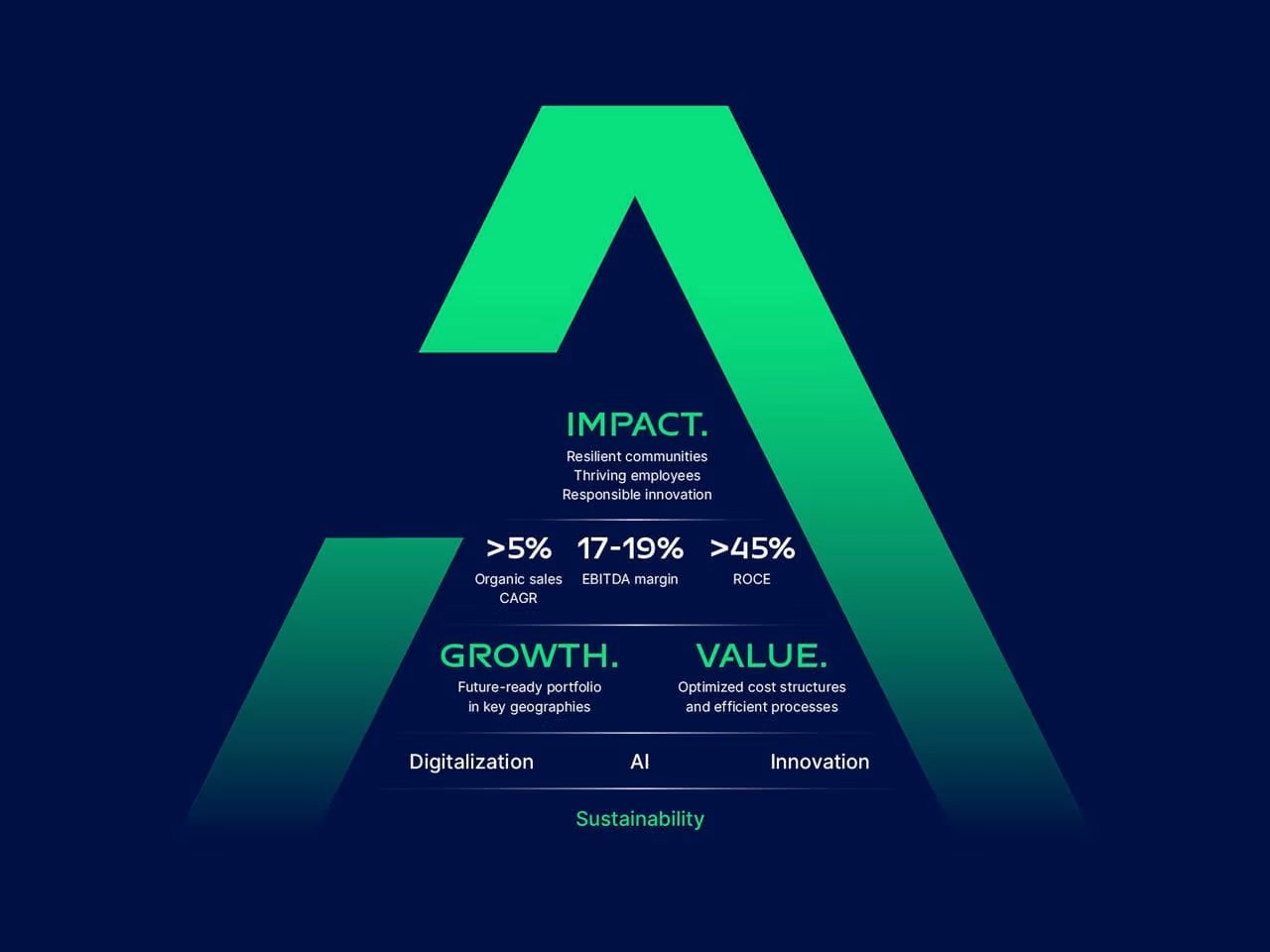At Capital Markets Day, GEA unveiled its Mission 30 strategy, outlining plans for continued growth and significantly expanding its portfolio of sustainable solutions by 2030. AI-driven processes and new business models will play a key role in achieving these goals. Among the new mid-term targets, GEA aims to grow organic revenue by more than 5% annually up to 2030. Additionally, the EBITDA margin is expected to reach 17–19%, with a return on capital employed exceeding 45%.
In recent years, GEA has performed exceptionally well, achieving its financial targets set in 2021 ahead of schedule. Mission 30 builds on this momentum, focusing on growth through digital solutions, resource-efficient innovations, and an expanded service business, all contributing to increased profitability.
GEA will further enhance its portfolio of sustainable customer solutions and services, aiming to increase the share of revenue from sustainable solutions to more than 60% by 2030. The company will focus on climate strategy development, production process decarbonization, "net-zero" process line solutions, and process optimization through digital applications.
The company also anticipates growth in alternative protein markets and expects order intake in this sector to exceed EUR 400 million annually from 2030.
Digitalization and AI are key pillars of Mission 30. With over 7,000 GEA machines already connected via the GEA Cloud, the company plans to increase this number to over 35,000 by 2030, supporting the expansion of AI-based solutions and applications.
The service business is also set to grow, with GEA expecting it to generate 40% of revenue by 2030, amounting to around EUR 2.9 billion. This growth will be supported by expanded service agreements and digital innovations.
In addition, GEA plans to optimize production, purchasing, and supply chain management through a global transformation program, which is expected to contribute EUR 120 million to EBITDA by 2030.
GEA also aims to reduce general administrative expenses to below 10% by 2030 through the harmonization of ERP systems, process optimization, and automation. These initiatives are expected to improve EBITDA by around 1.5 percentage points, contributing to a cumulative free cash flow of more than EUR 4 billion between 2024 and 2030.
With a strong market position, recognized sustainability leadership, expanding service offerings, and expertise in digitalization, GEA is well-positioned to achieve its strategic goals by 2030, continuing to create value for shareholders, customers, employees, and society.
